Thinking about starting a new chapter in the vibrant Lion City? Before you pack your bags, it’s essential to have a clear roadmap to make your move smooth and successful. From understanding how to secure your Singapore work visa, to budgeting wisely for your new life, and finding the most affordable flights this guide will equip you with practical insights and expert tips to help you confidently take the leap and settle in one of Asia’s most dynamic cities. Let’s dive in and prepare you for a seamless transition to Singapore.
Singapore is an island country and city-state in Southeast Asia. The country’s territory comprises one main island, 63 satellite islands and islets, and one outlying islet.
Singapore Work Visa Overview
Singapore’s immigration and employment landscape is designed to attract skilled professionals and entrepreneurs from around the world. Various types of work visas are made available to accommodate different categories of foreign workers, ensuring that the workforce needs of the country are met efficiently.
Employment Pass (EP)
The Employment Pass is issued to foreign professionals, managers, and executives who meet specific salary and qualification requirements. It allows the holder to live and work in Singapore for a period typically ranging from one to two years, with the possibility of renewal.
S Pass
The S Pass is granted to mid-level skilled workers whose qualifications and salary fall below the Employment Pass threshold but meet minimum eligibility criteria. The pass is subject to quotas and levies that employers must observe.
Work Permit
Work Permits are allocated to semi-skilled or unskilled foreign workers employed in sectors such as construction, manufacturing, marine shipyards, and services. Eligibility and quotas are strictly regulated to ensure compliance with local labor policies.
Personalized Employment Pass (PEP)
The Personalized Employment Pass targets high-earning Employment Pass holders and overseas foreign professionals. This pass offers greater flexibility by allowing the holder to stay in Singapore without being tied to a specific employer.
EntrePass
The EntrePass is intended for foreign entrepreneurs who wish to start and operate a business in Singapore. The application process emphasizes innovation and business viability, with requirements tailored to encourage economic growth.
Dependant Pass and Long-Term Visit Pass
Family members of Employment Pass, S Pass, or EntrePass holders may be eligible for Dependant Passes or Long-Term Visit Passes, allowing spouses and children to live in Singapore during the principal pass holder’s employment period.
Choosing the Right Visa
The appropriate visa is determined based on factors such as the applicant’s qualifications, job nature, salary, and length of stay. Employers and applicants are advised to carefully evaluate eligibility criteria to select the correct pass for their situation.
Detailed Singapore Work Visa Requirements
Employment Pass
Eligibility Criteria
To be eligible for an Employment Pass, a minimum fixed monthly salary currently set at SGD 5,000 for new applications is required. Applicants must also hold acceptable qualifications, such as a recognized university degree or specialized professional qualifications. In some cases, extensive work experience may be considered in lieu of formal qualifications.
Documents Required
The application must be accompanied by several key documents, including a valid passport, a formal job offer or employment contract, educational certificates, and detailed employer information. Additional supporting documents may be requested depending on the nature of the job or applicant’s profile.
Application Process
The Employment Pass application is typically submitted online through the Ministry of Manpower (MOM) portal by the sponsoring employer. Once submitted, the application undergoes verification and processing, which may include background and credential checks. The applicant may be requested to attend an interview or provide additional information.
Processing Time and Fees
Processing time for Employment Pass applications generally ranges from three to eight weeks. The application fee is SGD 105 per submission, with an issuance fee of SGD 225 payable upon approval.
S Pass
Eligibility and Salary Requirements
Applicants must earn a minimum monthly salary of SGD 3,000 and possess relevant qualifications such as a diploma or technical certificate. The pass is designed for mid-level skilled workers whose experience and credentials fall below the Employment Pass standard.
Medical Examination Requirement
A medical examination is mandatory for all S Pass applicants, which must be completed and submitted as part of the application process.
Quotas and Levies
Employers hiring S Pass holders must adhere to quota limits based on the sector and company size. Monthly levies are also imposed per S Pass holder to manage foreign workforce levels.
Securing Work Permit
Eligible Sectors
Work Permits are issued to foreign workers employed in sectors like construction, manufacturing, marine shipyards, and the service industry. Each sector has specific eligibility rules and caps on the number of permit holders.
Quotas and Levies
Quotas are strictly enforced to regulate the proportion of foreign workers in each sector. Employers are required to pay monthly levies for each Work Permit holder employed.
Restrictions and Validity
Work Permits are generally valid for up to two years but may be revoked or not renewed if employment conditions are not met. Holders are subject to restrictions such as no entitlement to change employers without approval.
EntrePass & Personalized Employment Pass (PEP)
Requirements and Benefits
The EntrePass requires the submission of a comprehensive business plan and evidence of financial backing. The pass supports startups and innovative ventures with eligibility criteria centered on business potential and economic contribution. The PEP offers flexibility by allowing holders to stay in Singapore without being tied to a single employer, provided the pass holder meets minimum salary conditions.
Application Nuances
Applications for EntrePasses are evaluated based on business sector and innovation. Renewals require proof of business progress and compliance with regulatory requirements. The PEP requires renewal every three years and is subject to stringent eligibility conditions at each renewal.

Application Tips and Common Pitfalls
How to Prepare Your Documents Properly
When applying for a Singapore work visa, it is crucial that all required documents are accurately prepared and submitted. Passports, educational certificates, employment contracts, and identification documents must be clear, valid, and properly certified if necessary. Ensuring that all translations are official and that documents meet Ministry of Manpower (MOM) specifications can significantly reduce delays.
How to Avoid Visa Rejection
Visa rejection can often be avoided by thoroughly meeting all eligibility criteria and providing complete and truthful information. Incomplete applications, discrepancies in employment details, or unverified qualifications are common reasons for denial. It is advisable to double-check the application before submission and seek professional advice if necessary.
Tips for Employers Sponsoring Work Visas
Employers are required to ensure that the job offer complies with MOM standards, including salary thresholds and quota limits. Sponsoring employers should maintain clear communication with applicants, provide all supporting documentation promptly, and keep records of compliance with foreign worker regulations. Timely submission and correct categorization of visa applications will improve approval chances.
What to Do if Your Visa Application Is Rejected
If a visa application is rejected, the reasons are usually stated in the notification. It is important to review these carefully and address any issues before reapplying. In some cases, an appeal or a fresh application with additional supporting documents may be necessary. Consulting immigration professionals or legal advisors is recommended to explore all available options.
How to Renew or Convert Your Visa
Work visas in Singapore can generally be renewed before expiration, provided that the holder continues to meet eligibility criteria. Renewal applications should be submitted at least two months before expiry. Conversion between visa types (for example, from S Pass to Employment Pass) may be possible if the applicant’s qualifications and salary change. MOM guidelines must be followed closely during conversion.
Cost of Settling in Singapore — A Deep Dive in
A. Housing
Rental Market Overview: Public vs. Private Housing
Singapore’s housing market is divided mainly between public Housing Development Board (HDB) flats and private condominiums or apartments. HDB flats are more affordable but usually reserved for citizens and permanent residents. Expats typically rent private housing, which offers greater amenities and flexibility.
Average Rental Prices by Neighborhood
Rental prices vary significantly depending on the location:
- Central Business District (CBD): Premium pricing due to proximity to work and amenities, average SGD 3,500–6,000/month for a one-bedroom condo.
- Orchard: Known for shopping and dining, similar rental rates to CBD.
- East Coast: Popular with families, rentals range from SGD 2,800–4,500/month.
- Jurong: More affordable option, with rents around SGD 2,000–3,500/month.
Types of Accommodation
- HDB Flats: Affordable public housing with basic amenities.
- Condominiums: Private complexes with security, pools, gyms, and other facilities.
- Serviced Apartments: Fully furnished with utilities included, ideal for short-term stays but more expensive.
One-Time Costs
Security deposits typically equal one to two months’ rent and are refundable. Agent fees of about half a month’s rent may apply if an agent is used. Additional expenses may include furnishing and utility setup fees.
Tips for Finding Affordable Housing
Utilizing online property portals, engaging trusted agents, and considering neighborhoods outside the city center can help secure better deals. Early rental search and negotiation are advised.
B. Daily Living Expenses
Food
Eating out at hawker centers offers affordable and authentic meals, averaging SGD 3–6 per dish. Cooking at home is generally cheaper but requires grocery shopping at local markets or supermarkets. Dining at restaurants is significantly more expensive.
Transportation
Singapore’s public transportation system is efficient and cost-effective. Monthly MRT and bus passes cost approximately SGD 100–150. Taxis and ride-hailing services such as Grab provide convenience but at higher costs.
Utilities
Monthly utility bills, including electricity, water, and gas can range from SGD 100 to SGD 200 depending on usage and accommodation type. Internet services are widely available at approximately SGD 40–80 per month.
Mobile Phone Plans and Internet Costs
Mobile plans start at around SGD 15 per month for basic data and call packages. Prepaid SIM cards are popular for short-term residents.
C. Healthcare and Insurance
Overview of Singapore’s Healthcare System
Singapore’s healthcare system is well-regarded for its quality and efficiency. Public healthcare services are subsidized for citizens, but foreigners typically pay full fees.
Mandatory Health Insurance for Foreigners?
While no mandatory health insurance is imposed on foreign workers by MOM, many employers provide coverage as part of the employment contract. It is strongly recommended to obtain private health insurance to cover medical expenses.
Recommended Private Health Insurance Options and Costs
Private insurance premiums vary widely depending on coverage levels, but basic plans start at approximately SGD 100–200 per month.
D. Education and Childcare (If Applicable)
International Schools and Tuition Fees
International schools are available and often preferred by expat families. Tuition fees vary widely but typically range from SGD 15,000 to SGD 40,000 annually depending on the school and grade level.
Childcare Options and Costs
Childcare centers and kindergartens offer services ranging from SGD 800 to SGD 2,000 per month based on location and facilities.
Miscellaneous
Entertainment and Leisure Costs
Movie tickets cost about SGD 10–15, gym memberships range from SGD 80 to SGD 200 monthly, and dining out or nightlife expenses vary greatly by preference.
Clothing and Personal Care
Clothing costs align with international prices; personal care services (haircuts, salons) typically range from SGD 20 to SGD 100.
Banking and Financial Services Fees
Opening a bank account is generally free for foreigners, but some transaction fees and minimum balance requirements may apply depending on the bank.
Preparing for Your Move
Packing Tips for Singapore’s Climate and Culture
Singapore’s climate is hot and humid year-round, with temperatures typically ranging between 25°C and 32°C (77°F to 90°F). Lightweight, breathable clothing made of natural fabrics like cotton or linen is recommended. Including an umbrella or raincoat is essential due to frequent, sudden showers. Business attire should be smart but comfortable, as offices are usually air-conditioned. Modest dressing is appreciated in religious and cultural sites.
Shipping vs. Buying Locally
Deciding whether to ship belongings or buy locally depends on personal preferences and budget. High-value or sentimental items might be worth shipping, but many household goods and electronics can be purchased affordably in Singapore. Shipping costs and customs duties should be considered before deciding.
Important Documents to Carry and Keep Copies Of
Essential documents such as passports, visa approval letters, work permits, educational certificates, medical records, and insurance papers should be carried in hand luggage. Digital copies should be stored securely online (e.g., cloud storage) to avoid loss or damage.
Registering with Your Embassy
Upon arrival, registering with your country’s embassy is advisable for safety and assistance during emergencies. Embassies often provide useful resources and updates for expatriates.
Upon Arrival: First Steps in Singapore
Immigration and Customs Tips
At immigration, ensure that all travel documents are ready for inspection, including your passport and valid visa or work pass. Declare any items as required by customs regulations to avoid fines.
Setting Up Essentials: SIM Card and Transport Card
Purchasing a local SIM card is easy at the airport or retail outlets, providing affordable data and call plans. Transport cards such as EZ-Link or NETS FlashPay can be bought and topped up at MRT stations, enabling cashless travel on public transport and some retail stores.
Finding Temporary Accommodation
If permanent housing is not arranged, short-term rentals or serviced apartments can be booked for initial stay. Websites like Airbnb and local agents specialize in temporary accommodation.
Opening a Bank Account and Getting a Local Phone Number
Opening a local bank account is essential for salary credit and daily transactions. Most banks require proof of employment and a valid work pass. A local phone number is often required for registration of services and communication with employers.
Living and Working in Singapore — What to Expect
Work Culture and Etiquette
Singapore’s work culture is professional, punctual, and hierarchical, with respect for authority and seniority valued. Meetings are generally formal but efficient. Teamwork and clear communication are emphasized.
Language and Communication Tips
English is the main working language, but Singlish, which is a local colloquial English variant is commonly spoken socially. Being clear and polite, and adapting to local communication styles will ease integration.
Social Life and Making Friends
Expat communities, hobby groups, and networking events provide opportunities for socializing. Participation in community activities and local festivals helps foster friendships.
Safety and Healthcare Access
Singapore is considered one of the safest cities globally, with low crime rates and strict laws. Healthcare facilities are world-class and easily accessible. Emergency services and pharmacies are available 24/7.
Conclusion
Relocating to Singapore offers exciting career opportunities and a vibrant lifestyle in one of Asia’s most dynamic cities. By understanding the visa process, budgeting wisely, finding affordable flights, and preparing thoroughly, your transition can be smooth and rewarding. Whether you are a professional, entrepreneur, or moving with family, this guide provides the essential knowledge to make Singapore your new home.



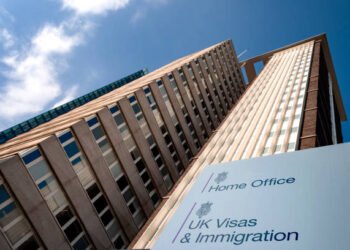
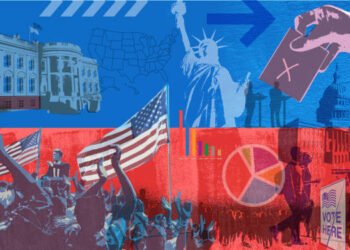

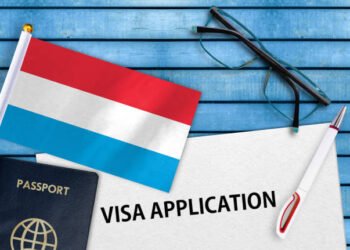


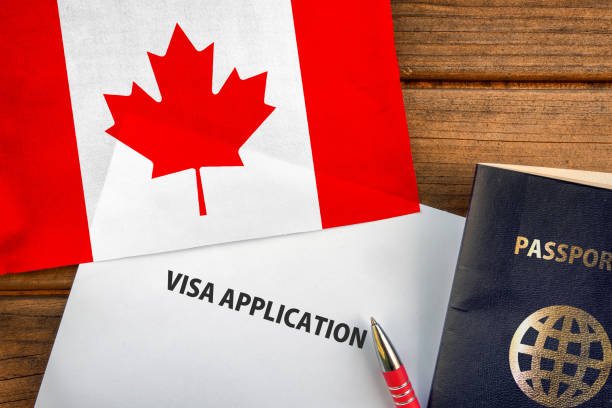







From feranmi sumonu
Okay
I like to work in Canada
I like to work in Canada
All d country rules & regulation, will b abide if I can b opportunity to work in Canada
Job in Singapore
Please can you help me with some money
CANADA is okay
Hello
Job in Germany
Hi my name is Samuel from Nigeria
AM interested
I will love to work in Canada or UK
I like to work in Canada
I’m really miss you so much my dear my name Abubakar Muas am for Nigeria Abuja am going to work and everyone else if you want me
This is my number Abubakar Muas, 08100878780, that’s my number Please call me or text me with my number or WhtsaApp me
I need a Jobs to work Am a Nigeria Man
It will be a pleasure to see myself work in Canada
+2349061203929,Incase of WhatsApping me.
I will like to work in Canada
I like to work in Canada as Electrical Technician/Installation
I like to work as Electrical/installation Technician
08145787546
How are you doing
Hi
I miss you so much
It me
https://www.facebook.com/share/p/16Xzwvb59i/
Am interested in love with peace
Ambrose lawyer
To marry
Post comment
I waht to come to your contiry to marry
How to find jobs in Canada
Solomon j Benjamin I like to work in Canada 🇨🇦